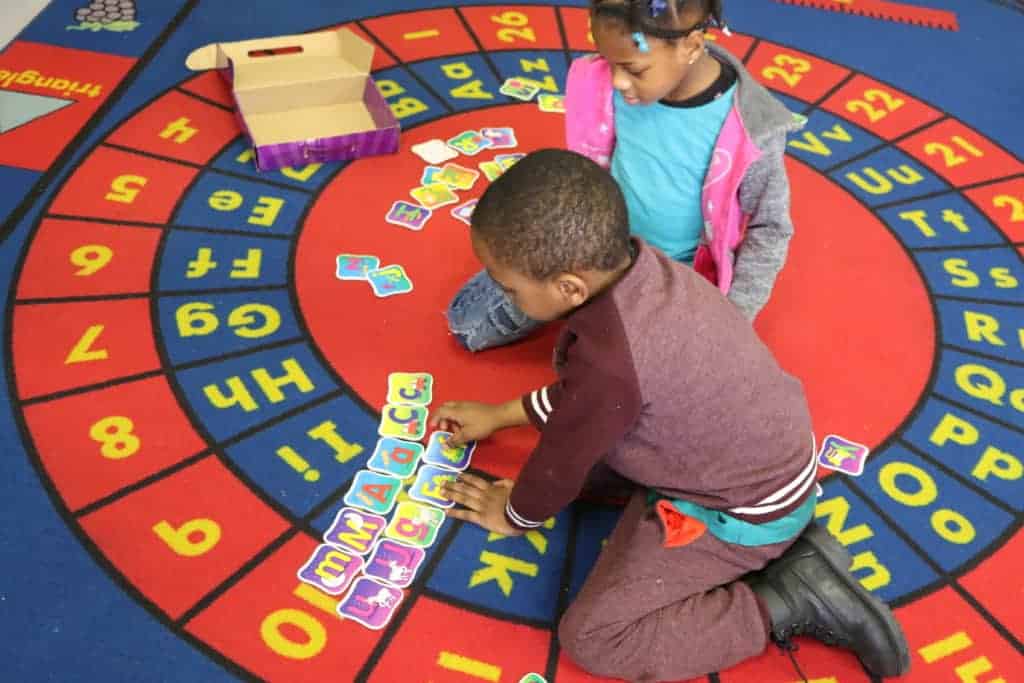An N.C. early ed study that 'changed the world' and its 'color-blind' approach
Early Bird readers, hello again. Newcomers, welcome! If you were forwarded this email, you can sign up here to receive it every two weeks, and join our conversation on issues facing North Carolina’s young children and those who support them. If you’re already a subscriber, please help us reach more people by sharing this with your friends and co-workers interested in early childhood education.


North Carolina has been influential in the world of early education practice in recent years, from its Smart Start and NC Pre-K models to its quality rating system. But work from the state also has left its mark on the research that informs policy and practice.
Starting in the 1970s, researchers at the Frank Porter Graham Child Development Institute at UNC-Chapel Hill followed a set of 111 children in Chapel Hill to test whether an early educational intervention in the first five years of life could make a difference in their cognitive outcomes. This was debatable at the time, early childhood researcher Kenneth Dodge told me.
The intervention made a large difference, both in the five years the intervention lasted, and down the road, into elementary and high school and later in adulthood, in everything from academic achievement to physical and mental health and employment.
And the results of this research, known as the Carolina Abecedarian Project, made a big difference too, Dodge said. “That changed the world,” he said. “It expanded more research in the area, more innovation.” Some of the most-known research and programs across the country, from the HighScope Perry Preschool Project to Head Start, have been influenced by the research or have used the findings to advocate for the importance of early intervention.
A new paper brings the research and its findings some missing context: race. Almost all of the children and families studied were Black. Yet consideration was largely missing of the policies creating racial inequities, the trauma of that racism, or the cultural assets of Black children and families.
This “color-blind” approach extends beyond this one study, said the paper’s authors, Iheoma Iruka and Elizabeth Pungello Bruno. Their hope is to have uncomfortable conversations that move early childhood research, policy, and practice forward to meeting the needs of all children.
“We are losing ground to other countries because we have not embraced the brilliance of our multi-racial, multi-ethnic country,” Iruka said.
I’m also hearing from child care providers struggling to find teachers, district leaders rethinking early learning, and advocates closely watching a federal package that could be big for child care and pre-K. I’d love to hear from you. Reply to this email with story ideas or questions, or to set up a time to chat.
Early Bird reads: What we’re writing
Groundbreaking NC early childhood study missed a lot by ignoring race, paper says
“By being color-blind and ignoring race, you’re ignoring racism,” said Elizabeth Pungello Bruno, president of the Brady Educational Foundation and former investigator on the Abecedarian Project. “You’re ignoring a huge factor that’s impacting the community, not just individual interactions, but the structural policies that are leading to inequities.”
In other early learning news: What I’m reading
Seeding Accounts for Kindergartners and Hoping to Grow College Graduates - From The New York Times
How money aimed at helping Minnesota’s child care industry ended up pitting large and small providers against each other - From MinnPost
Biden's Commerce Secretary demands higher pay for childcare workers. 'Our economy cannot run without these women.' - From Business Insider
Escasean los fondos y la capacitación cuando quienes cuidan a tus hijos son amigos y vecinos - From The Hechinger Report
Research & Resources: Let's talk how much money child care providers will receive
Gov. Roy Cooper visited another child care center in Charlotte last week to publicize the child care grants providers will receive over an 18-month period starting this fall. The money comes from the federal American Rescue Plan, and child care directors must apply to receive it. The application must be completed and submitted by October 31 at 11:59 p.m.
“High-quality child care and pre-kindergarten are critical building blocks for children’s success in school and for parents who work,” Cooper said. “When we invest in early childhood education, we are investing in the workforce of today and tomorrow.”
The funds can be used for such things as increasing teachers’ compensation and benefits, repairing facilities, providing mental health supports for children and staff, covering rent and utilities, and purchasing cleaning supplies and other materials.
The Division of Child Development and Early Education is hosting webinars to share information on how the state is deciding how much money programs will receive, on these dates:
-
Monday, October 25, 2021, noon to 1 p.m.Join audio conference only: +1-415-655-0003Access Code: 2432 881 7415Event password: FORMULA
-
Wednesday, October 27, 2021, 4-5 p.m.Join audio conference only: +1-415-655-0003Access Code: 2437 038 4427Event password: FORMULA
-
Wednesday, October 27, 2021, 6-7 p.m.Join audio conference only: +1-415-655-0003Access Code: 2427 584 1319Event password: FORMULA


